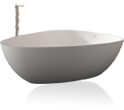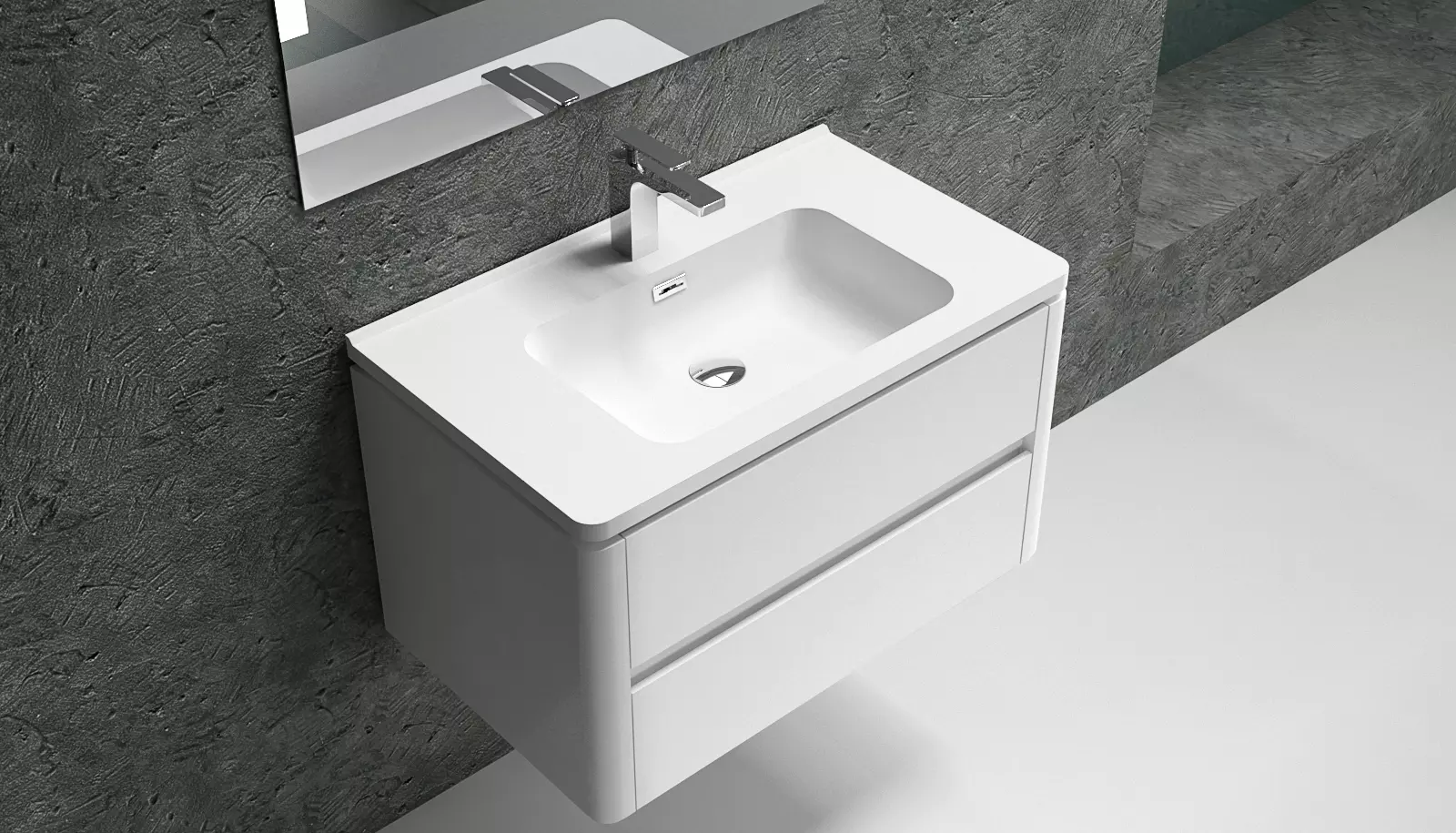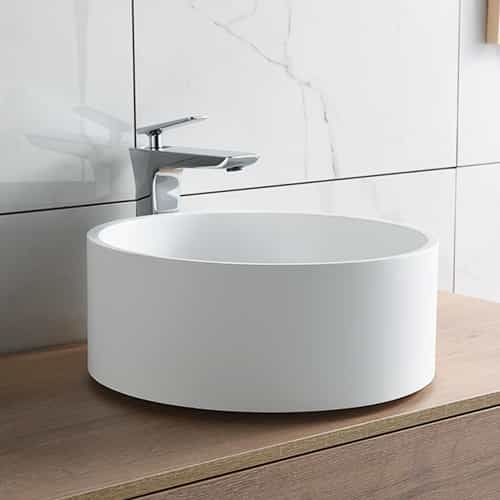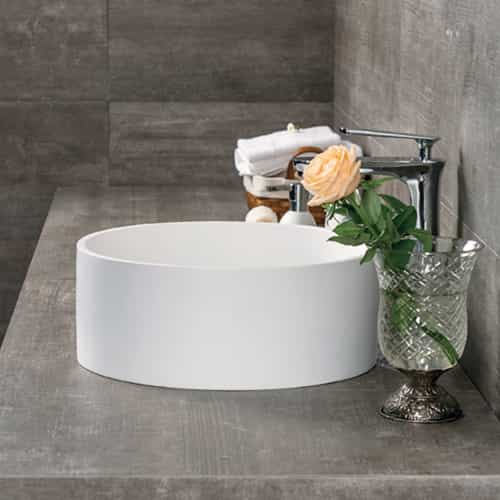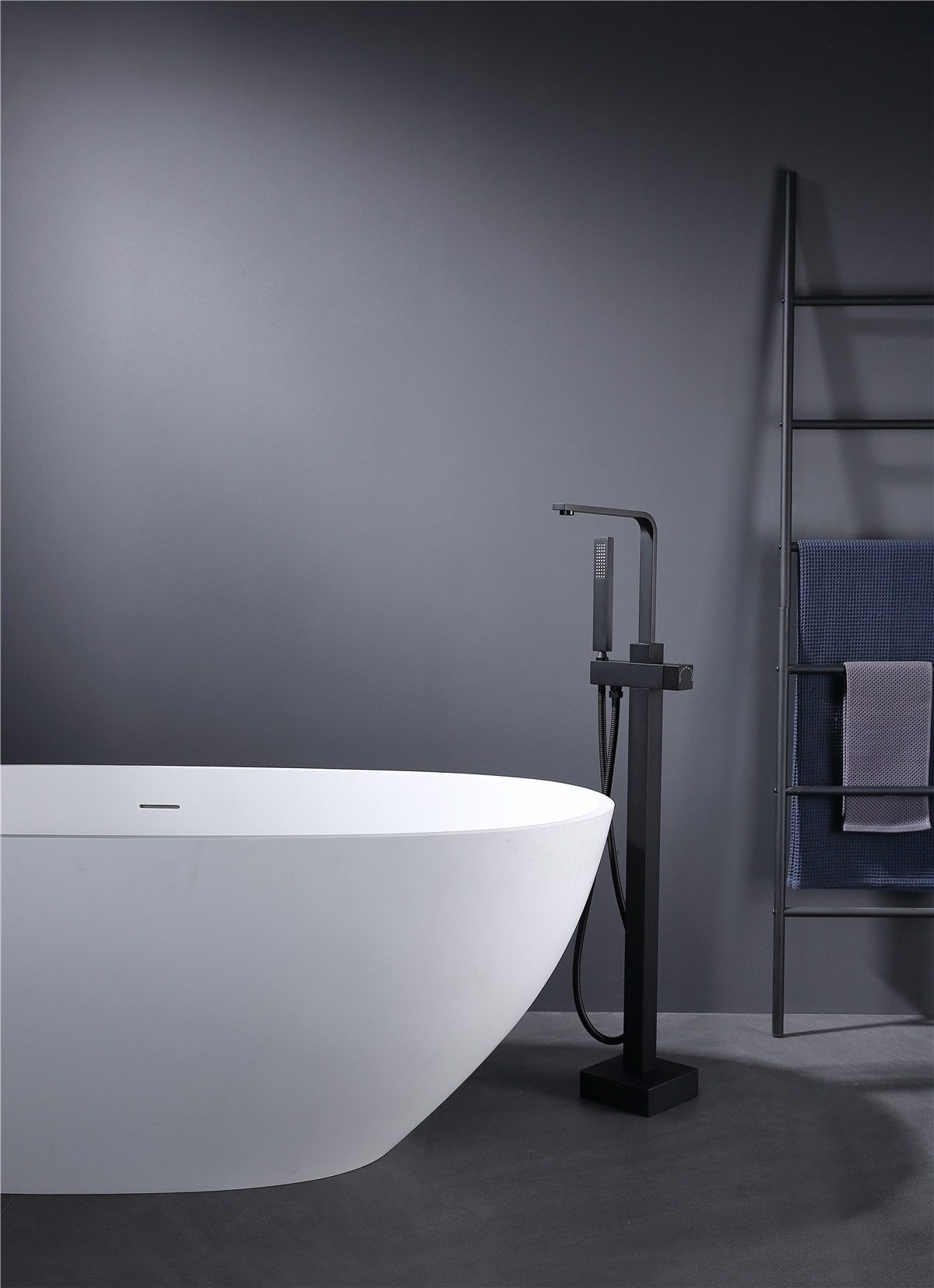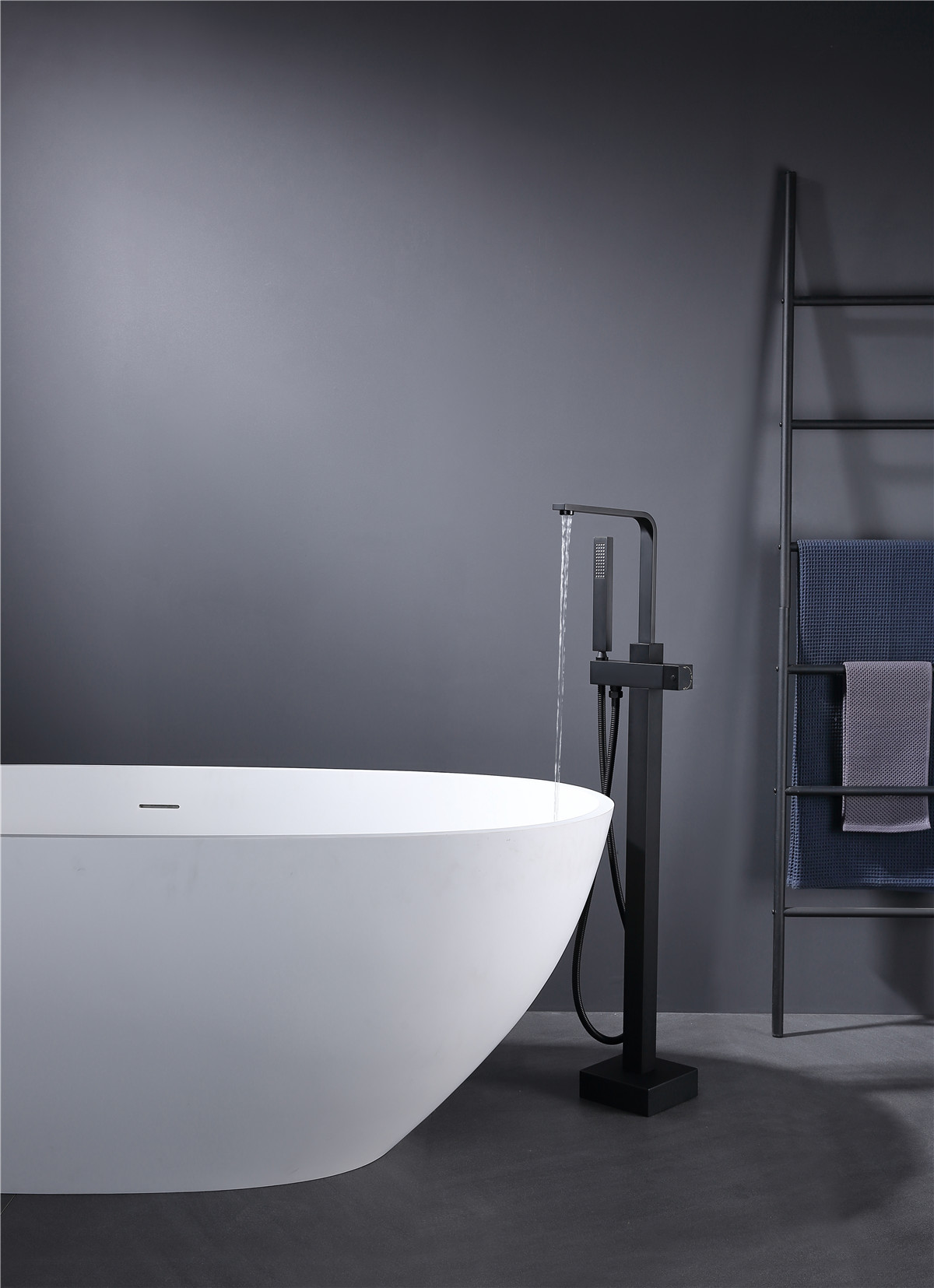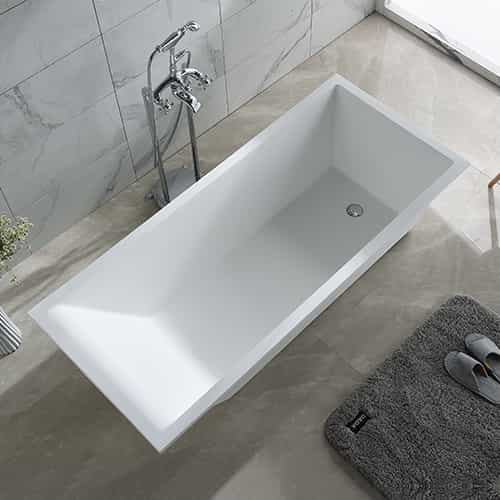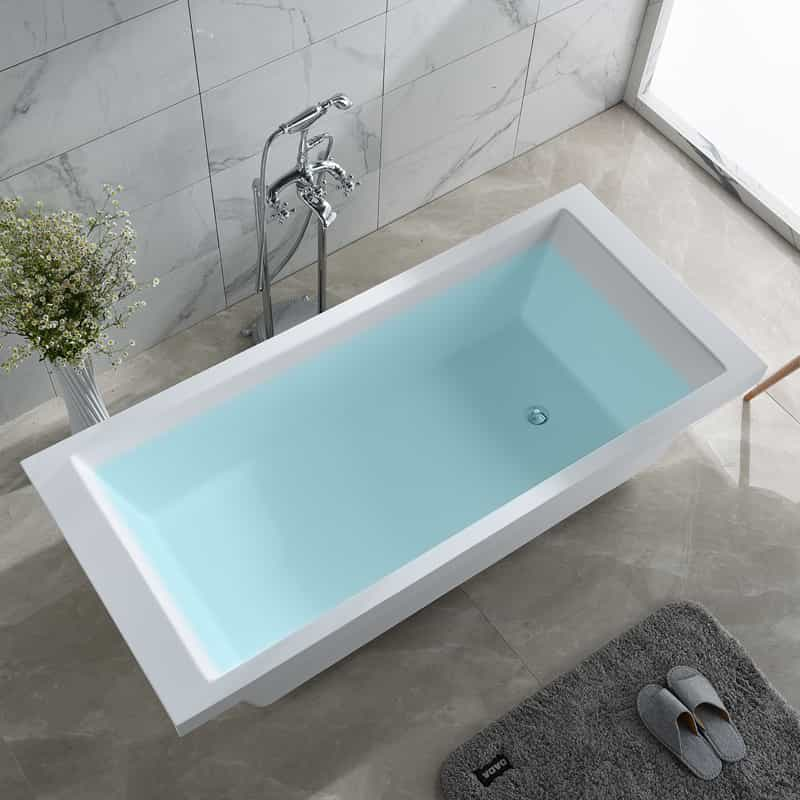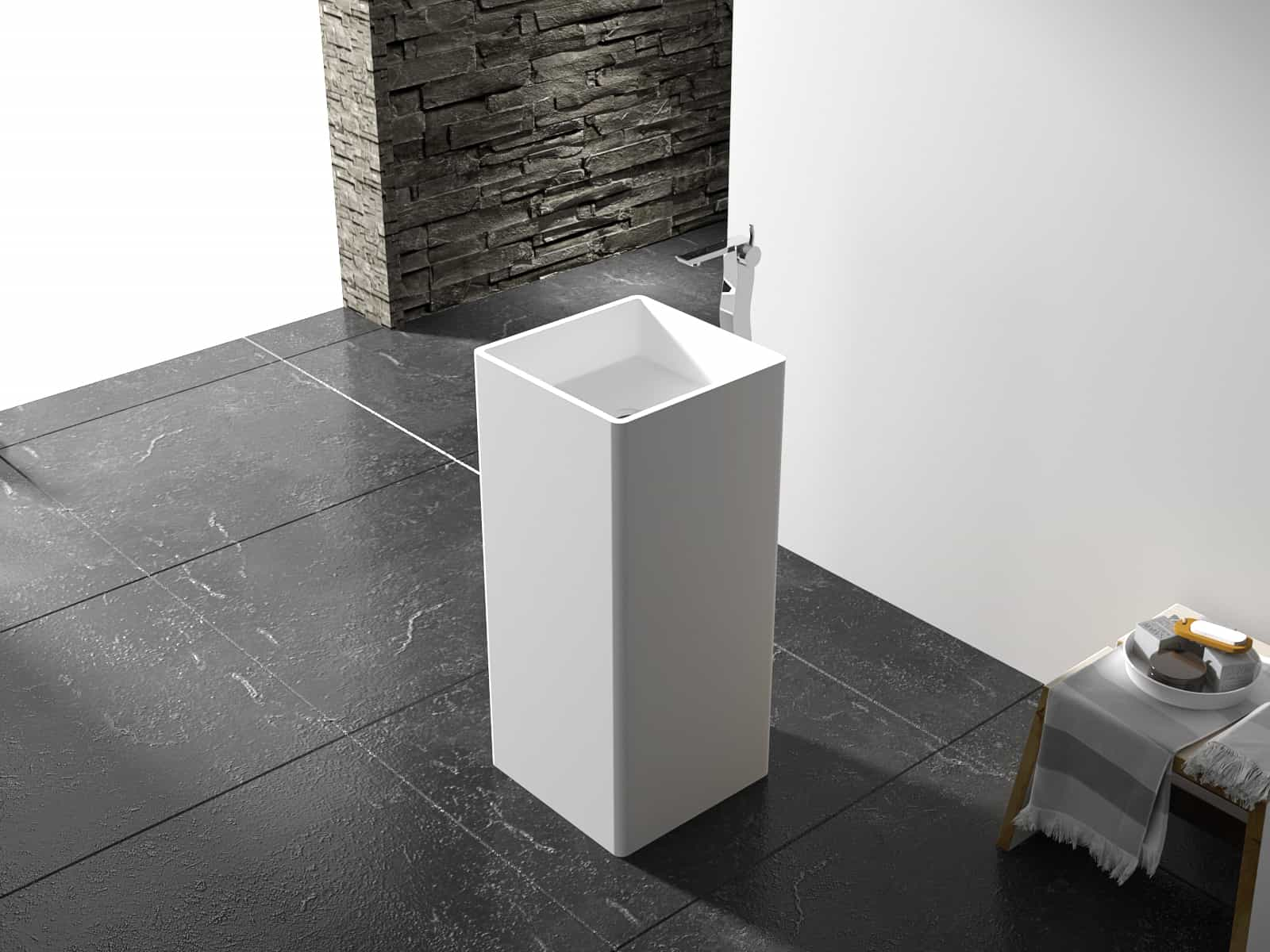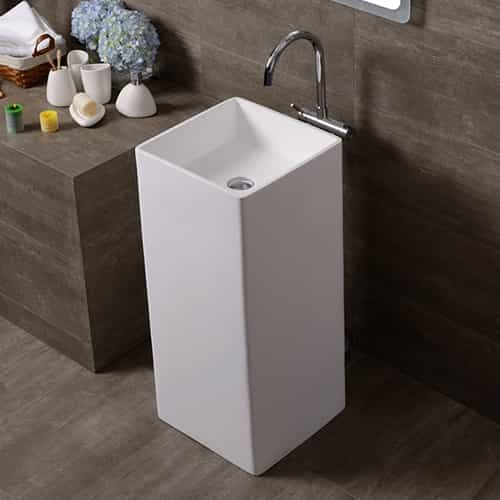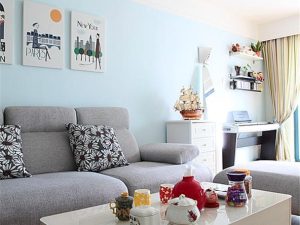
Modern home feng shui is a very important link in people’s daily home decoration, so let’s follow us to take a look at some taboos of modern home feng shui, let’s take a look together.
Detailed explanation of Feng Shui taboos in modern home
1. Chuanxinmen: The gate is facing the corridor or passage. This pattern is called Chuanxinmen. If the depth of the house is less than the length of the corridor, it will be more unfavorable. The solution is to install screens inside to absorb the impact of external airflow on the house.
2. Facing the stairs: If the gate faces the stairs, it will affect the tranquility of the house. In Feng Shui, it is a sign of internal wealth and external flow. The solution is to place large-leaf plants inside the door, such as fortune trees and money trees, which have the meaning of attracting wealth and treasure.
3. Facing the elevator: The door is facing the elevator, which will also affect the tranquility of the house. In Fengshui, the door is broken, which is an ominous sign, and a screen is also placed inside to melt it.
Ten Principles of Feng Shui for Modern Homes
1. The overall system principle
Holistic system theory, as a complete science, was produced in this century; as a simple method, Chinese sages began to use it very early. Feng Shui theory regards the environment as a whole system, which is human-centered and includes everything in the world. Each subsystem in the environment is an element that is interrelated, restricts, depends on, opposes and transforms each other. The function of Feng Shui is to macroscopically grasp and coordinate the relationship between various systems, optimize the structure, and seek the best combination.
Feng Shui fully pays attention to the integrity of the environment. “The Yellow Emperor’s House Classic” advocates “Take the situation as the body, the spring water as the blood, the land as the skin, the vegetation as the hair, the house as the clothes, and the door as the crown belt. Shangji.” Yao Yanluan in the Qing Dynasty emphasized the overall functionality in the “Yangzhai Integration” volume “Dan Jing Kou Jue”, advocating that “the Yangzhai must choose the terrain, the back of the mountain and the water are called people’s hearts. In a ring shape, the bright hall is wide and big, and it is a blessing, and the water mouth collects tens of thousands of gold. There is no obstacle between the gate and the evil, and the light is in the prosperous gate.”
The overall principle is the general principle of Feng Shui, and other principles are subordinate to the overall principle. It is the basic point of modern Feng Shui to deal with the relationship between people and the environment with the overall principle.
2. The principle of making homes according to local conditions
Adapt measures to local conditions, that is, adopt a lifestyle suitable for nature according to the objectivity of the environment. “Book of Changes. Da Zhuang Gua” puts forward: “fit the shape and stop”. In the pre-Qin period, Jiang Taigong advocated adapting measures to local conditions. “Historical Records. Credit Biography” records: “The Taigong hoped to be entrusted to Yingqiu, where the ground was brine, and the people were few, so the Taigong persuaded his women to work hard and learn about fishing and salt.”
China has a vast territory, with great differences in climate, soil quality and architectural forms. Due to drought and little rain in the northwest, people live in cave dwellings. Most of the cave dwellings face south, easy to construct, do not occupy land, save materials, prevent fire and cold, warm in winter and cool in summer, people can live longer, and chickens lay more eggs. The southwest is humid and rainy, and there are many insects and animals, so people live in dry-wall bamboo buildings. “Old Tang Book. Nanman Biography” said: “There are poisonous weeds and lice-bellied snakes on the mountain. People live together in the building and climb up the ladder. The name is Ganlan.” The downstairs is empty or raises animals, and the upstairs lives. Bamboo buildings are ventilated, cool and moisture-proof, and most of them are built near mountains and rivers. In addition, herdsmen in the grasslands use yurts as their residences, which is convenient for moving with water and grass. People in the mountainous areas of Guizhou and Dali built houses with rocks, and these architectural forms were created according to the specific conditions of the time and place.
Many existing buildings in China are models adapted to local conditions. Wudang Mountain in Hubei Province is a famous place of Taoism. Zhu Di, Emperor Chengzu of the Ming Dynasty, sent 300,000 people to build temples on the mountain.
China is a pragmatic country, and adapting measures to local conditions is the embodiment of pragmatic thinking. According to the actual situation, adopt practical and effective methods to make people and buildings suitable for nature, return to nature, return to simplicity, and unite man and nature. This is the true meaning of Feng Shui.
3. The principle of being close to mountains and rivers
Being close to mountains and rivers is one of the most basic principles of Feng Shui. Mountains are the skeleton of the earth, and waters are the source of life for all things. Without water, people cannot survive. The primitive tribes discovered by archeology are almost all on the riverside platform, which is suitable for the hunting, fishing and picking economy at that time.
There are two types of situation in Yishan, one is “earth bag house”, which is surrounded by mountains on three sides, with a wide area in the middle of Austria, open to the south, and houses are hidden among thousands of trees. Zhang Guying Village, Wei Township, Yueyang County, Hunan Province is in such a terrain. The remaining veins of Mufu Mountain stretch for five hundred miles, and three big peaks protrude in the northeast and west, like three big petals embracing a lotus. During the reign of Xuande in the Ming Dynasty, Zhang Guying came to settle here. Over the past 500 years, more than 600 households and more than 3,000 people have developed a illustrious family. More than 800 houses in the village are in collusion. Men, women, old and young live in order and live a peaceful and peaceful life .
Another form of Yishan is “house bag mountain”, that is, a group of houses cover the hillside, from the foot of the mountain to the mountainside. The wharf towns along the middle and upper reaches of the Yangtze River are all like this, combing the hillside with their backs, climbing up the stairs, and looking imposing. Wuhan University, which has a history of nearly a hundred years, is located at the foot of the verdant Luojia Mountain. The designer fully considered the specific Fengshui and built houses against the mountain. The student dormitory is close to the hillside, like a curved city wall, with a gate-shaped entrance and exit. On the surface platform, the central hole is the axis, the library is in the center, and the teaching buildings are separated on both sides. The master-slave is orderly, rigorous and symmetrical. The school has a natural momentum and the strength of a castle, which shows the grand style of an institution of higher learning.
Nanjing, the former capital of the Six Dynasties, is adjacent to the Yangtze River, surrounded by mountains, and has the potential of tigers and dragons. It is surrounded by Qinhuai River and Renjiang River, and there are many mountains along the river. From southwest to northeast, there are Stone Mountain, Ma’an Mountain, and Mufu Mountain; Zhongshan Mountain in the east; Fugui Mountain in the west; Bailuzhou and Changmingzhou in the south, forming Jiajiang. Gao Qi of the Ming Dynasty praised and said: “Zhongshan is like a dragon going up to the west alone, trying to break through the huge waves and ride the long wind. The mountains and rivers will not give in to each other, and the shape is victorious and the world is strong.”
Fourth, the principle of observing the situation
The “Ten Books of Yang Zhai” in the Qing Dynasty pointed out: “The place where people live should be dominated by mountains and rivers, which have the largest energy source and are most important in relation to human disasters.”
In China’s geographical situation, there is a large latitudinal structure every 8 degrees, such as the latitudinal structure of the Tianshan Zaoyin Mountain; the latitudinal structure of the Kunlun Mountains and Qinling Mountains. “Kao Gong Ji” says, “The trend of the world, there must be a river between two mountains. There must be a way above the big river.” “Yu Gong” divides China’s mountains into four columns and nine mountains. Feng Shui refers to the continuous mountains as dragon veins. The dragon veins originate from the Kunlun Mountains in the northwest, and extend to the southeast with three dragon veins. The Northern Dragon enters Shanxi from Yinshan Mountain and Helan Mountain, starts from Taiyuan, and ends at the sea. Zhonglong enters Guanzhong from Minshan Mountain to Taishan Mountain. Nanlong runs from Yunnan, Guizhou and Hunan to Fujian and Zhejiang into the sea. Each large dragon vein has dry dragons, branch dragons, real dragons, fake dragons, flying dragons, potential dragons, and Semprons. To investigate Feng Shui, you must first figure out the ins and outs and follow the direction of the dragon veins.
There is a difference between the shape and potential of dragon veins, a thousand feet is the potential, a hundred feet is the shape, the potential is the distant view, and the shape is the close view. Potential is the worship of form, and form is the accumulation of potential. If you have potential, you will have form, and if you have form, you will know the potential. The potential is on the outside, and the form is on the inside. The potential is like a city wall, and the shape is like a tower. The potential is a group of undulating peaks, and the shape is a single mountain top. It is difficult to recognize the situation, but easy to observe the shape. The momentum is like a dragon, like the gallop of a horse, like the waves of water, if you want it to be big and strong, it will be different but special, and it will go smoothly. The shape should be thick, accumulate and store gas.
It is better to have Chaoan Mountain at the gathering place of dragon veins. Chaoshanan Mountain is a mountain that is similar to the shape of the court arch, just like the officials surrounded by the monarch. The mountain of Chaoan can keep out the wind and is very interesting. For example, “Zhu Zi Yu Lei” discusses the general environment of Beijing: “The Jidu mountain range comes from the clouds, and the Yellow River surrounds it in front. Mount Tai towers to the left as a dragon, and Huashan towers to the right as a tiger. The height is the previous case, and the mountains in Huainan are the first. In the second case, Wuling in the south of the Yangtze River is the third case. Therefore, there is no place where the capital was built in ancient and modern times. It is said that there is no wind to disperse it, and water to border it.” To illustrate the advantages of Beijing’s geographical environment.
Observing the small environment from the large environment, we can know the external constraints and influences on the small environment, such as water sources, climate, products, geology, etc. The good or bad performance of any piece of residential land is determined by the general environment, just like the pulse of traditional Chinese medicine. From the pulse condition, the general condition of the body can be known from the pulse condition, which is strong, thin, stringy, empty, tight, slippery, ups and downs, and slow, because it is determined by the cardiovascular system. determined by the functional state. A homestead is only perfect if the situation is perfect. Every time a city is built, every building is built, and every factory is built, the environment of mountains and rivers should be considered first. If you think big and start small, you must take care of your worries first, and then you will be rich.
V. Principles of Geological Inspection
Feng Shui is very particular about geology, even picky, thinking that geology determines people’s physique, modern science proves that this is not alarmist. The impact of geology on the human body has at least the following four aspects:
First, the soil contains trace elements such as zinc, platinum, selenium, fluorine, etc., which are radiated into the air under photosynthesis and directly affect human health. Wang Tonggui of the Ming Dynasty said in “Er Tan”: “Chang Ning of Heng’s Laiyang produces tin, and the local people say it: the place where tin is produced is not suitable for reproduction, so people must be poor and relocate.” It is more than a thousand years earlier than “Er Tan” The “Shan Hai Jing” also records a lot of the relationship between geology and the body, especially the plants grown from specific geology, which have an impact on the body shape, constitution, and fertility of the human body.
Second, wet or smelly geology can lead to arthritis, rheumatic heart disease, skin diseases, etc. Damp and rotting land is a natural breeding ground for bacteria and the root cause of various diseases. Therefore, it is not suitable to build a house.
The third is the influence of the earth’s magnetic field. The earth is a planet surrounded by a magnetic field. Humans cannot feel its existence, but it affects human beings all the time. A strong magnetic field can cure diseases, or hurt people, and even cause dizziness, drowsiness, or neurasthenia. Chinese ancestors knew the magnetic field very early. “Guanzi. Dishu” said: “Where there is a magnet on the top, there is copper and gold on the bottom.” In the Warring States Period, there was Sinan, and the compass was widely used in the Song Dynasty, all of which were scientific applications of geomagnetism. Feng Shui thought advocates conforming to the geomagnetic orientation. Yang Junsong pointed out in “The Twelve Sticks Method”: “The evil in the real Chong is unbearable, and the hall energy returns to the two (inch) sides. According to the pulse, a little two or three feet away, the stick is the most refined in the method.” This is It is said that the auspicious point can only be obtained by avoiding the strong geomagnetism for a while. Feng Shui masters often say that huge rocks and sharp corners are unlucky for doors and windows, but they are actually worried that the strong magnetism emitted by the huge rocks will interfere with the residents inside the doors and windows.
The fourth is the impact of harmful waves. If there are underground rivers 3 meters below the residential ground, or double-layer crossed rivers, or potholes, or complex geological structures, they may emit long vibration waves or pollute radiation or particle flows, causing headaches, dizziness, endocrine disorders and other symptoms.
In the above four situations, the old Feng Shui masters knew what happened but did not know why, and could not explain it with scientific principles. In practice, they consciously or unconsciously took evasive measures or made it mystified. Some feng shui masters visit the site in person, grind the soil with their hands, taste the soil with their mouths, even dig earthen wells to check the deep soil and water quality, and bend over to listen to the flow and sound of groundwater. reason.
6. Principles of water quality analysis
How to distinguish water quality? “Guanzi Dizhen” believes that: soil quality determines water quality, and water quality is judged from water color. Water is white and sweet, yellow and smelly, black and bitter. The Fengshui classic “Boshan Pian” advocates “look for the dragon and recognize the qi, recognize the qi and taste the water. Its color is green, its sweetness is sweet, its fragrance is fragrant, and it is noble. Its color is white, it is clear, and it is warm, and it is noble.” Its color is light, its ambiguity is pungent, its energy is strong, and it is expensive. It is bitter and astringent, if it is steamed, it is not enough. “Kanyu Manxing” discusses the good and evil of water: “Qinglian is very sweet and delicious. This is called Xiquanlongmai. long. Spring is not full and autumn is not dry, so it is best to find a good collection here. “
Water in different regions contains different trace elements and chemical substances, some of which can cause diseases, while others can cure diseases. There is a mountain spring at the foot of Elephant Trunk Mountain in Chengtian, Taishun, Zhejiang Province. The spring water is steaming all year round. When local people get sick, they soak in the spring water, which is more effective than taking medicine. After inspection, it was found that the spring water contained a large amount of radioactive element nitrogen. “Shan Hai Jing. Xi Shan Jing” records that there is irrigation water beside Shijian Mountain, “There is flowing ocher in it, and cows and horses are not sick by painting.”
In Tengchong County, Yunnan Province, there is a “Chique Spring”. The spring water is crystal clear, but there are no living things. Ducks and birds will die as soon as they reach the spring. According to the investigation of scientists, the spring water contains a large amount of cyanide acid and hydrogen chloride, which are extremely toxic substances that kill living things. In “The Romance of the Three Kingdoms”, it is described that the soldiers of the State of Shu went deep into the barren land and drank the poisonous spring by mistake, causing heavy casualties, which may be related to this poisonous spring. It is not suitable to build a village near such a water source.
The vast majority of spring water in China has development value. Jinan, Shandong is known as the Spring Water City. Fujian Province has found 1,590 mineral water spots, ranking the most among all provinces in the country. Among them, 865 mineral water spots are available for medical treatment and drinking. There is an eye milk spring in Fenghuang Mountain in Guangxi, the spring water is like milk, and it is used to make tea, and the taste of the tea will not change for a week. At the foot of Jiufengling, Fuxi Ri Township, Yongfeng County, Jiangxi Province, there is a one-square-meter taste spring. Since spring water is filtered through underground ores, it often contains minerals such as sodium, calcium, magnesium, and sulfur. Taking it orally, washing, and bathing is undoubtedly beneficial to health.
Feng Shui theory advocates investigating the ins and outs of water, analyzing water quality, mastering water flow, and optimizing water environment. This principle is worthy of in-depth research and promotion.
7. The principle of sitting north and facing south
China is located in the northern hemisphere of the earth, east of the Eurasian continent, most of the land is located north of the Tropic of Cancer (23 degrees 26 north latitude), and the sun shines from the south all year round. South-facing houses are easy to take in the sun. Sunshine has many benefits for people: first, it can keep warm. In winter, the temperature in the south is 1 to 2 degrees higher than that in the north; Ultraviolet light has a bactericidal effect, especially for diseases transmitted through the respiratory tract; fourth, it can enhance the immune function of the human body.
Sitting north and facing south is not only for lighting, but also for shelter from the wind. The topography of China determines that its climate is monsoon type. There is a Siberian cold current in winter and a cool breeze from the Pacific Ocean in summer.
The wind changes direction. Oracle bone inscriptions have records of wind measurement. “Historical Records. Law Book” says: “Buzhou’s wind is in the northwest, which is October. Guangmo’s wind is in the north, which is November. Tiaofeng is in the northeast and the first month is also. Ming Shufeng is in the east, which is February.”
There is a difference between yin wind and yang wind in wind. In the late Qing Dynasty, He Guangting said in “Earth Science Correction”: “Pingyang is not afraid of the wind, but there is a difference between yin and yang. It doesn’t matter if you experience warm wind from east to south, so-called yang wind. It doesn’t matter if you suffer from west to north. Cool wind, cold wind, so-called cloudy wind, should be blocked by a nearby case, otherwise the wind will blow the bones and the bones will be cold, and the family will be ruined.” This is to avoid the northwest wind.
The methods of Feng Shui to indicate the orientation are as follows: First, the five elements of wood are east, fire is south, metal is west, water is north, and earth is middle. Second, take Li as the south, Kan as the north, Zhen as the east, and Dui as the west in the eight trigrams. Third, take A and B of the stem and branch as the east, Bingding as the south, Gengxin as the west, and Rengui as the north. Take the earthly branch as the north and Wu as the south. Fourth, take the Canglong in the east, the white tiger in the west, the red bird in the south, and the Xuanwu in the north. Or called: “Left green dragon, right white tiger, front Suzaku, back Xuanwu.” “Wu Xingzhi. Tanqi” records the layout of the acupoint code named Xingjunzhi: the hall is in the center, Qiaomen is in front of it, and “Bian Cang” is behind it. “Qingfeng” and “Meeting Scenery” “The sales office is winding on the left, with a green dragon elephant.”
In a word, the principle of sitting north and facing south is a correct understanding of natural phenomena, conforming to the way of heaven, gaining the aura of mountains and rivers, receiving the brilliance of the sun and the moon, nourishing the body, cultivating sentiments, and the spirit of the earth will produce outstanding people.
Eight, the principle of moderate center
Moderate means just right, impartial, neither big nor small, neither high nor low, optimized as much as possible, close to perfection. “Guan’s Geography Zhimeng” says: “If you want it to be high but not dangerous, if you want it to be low but not disappear, if you want it to be obvious but not to show violence
Lu, wants to be quiet but not secluded, wants to be strange but not weird, wants to be clever but not inferior. “The principle of moderate Fengshui came into being as early as the pre-Qin period. The moderation advocated in “The Analects of Confucius” means that there is nothing wrong with it, and that you choose the best position in order to be in line with the right way. “Lu Shi Chunqiu. Zhongji” pointed out: If there is too much yin, if the platform is high, there will be more yang; if there is too much yin, it will fall; “The balance of yin and yang is moderation.
Feng Shui theory advocates that the mountains, water flow, and orientation should be coordinated with the cave, as well as the size and size of the house. Wu Caiding of the Qing Dynasty pointed out in “A Summary of Yang Zhai”: “Fan Yang houses must have square foundations, neat frames, east surplus and west shrinkage, and the fixed loss of Ding’s wealth.”
Another layer of moderation means centering. Why didn’t the capitals of all dynasties in China choose Guangzhou, Shanghai, Kunming, and Harbin? Because the location is too remote. The “Taiping Yulan” volume records: “The king ordered the founding of the country, and the capital must be located in the middle of the land. Therefore, to control the harmony of the world, according to the righteousness of Yin and Yang, unify the four directions, and control the nations.” The reason why Luoyang became the old capital of the Nine Dynasties , the reason is that it is in the middle of the world. The differential land rent price is determined according to the degree of middleness. Only in the downtown area can banks and shopping malls benefit the most.
The principle of moderation also requires that the center be highlighted, the layout be neat, and the additional facilities closely surround the axis. In a typical Feng Shui landscape, there is a central axis, which is parallel to the meridian of the earth and extends north-south. The northern end of the central axis is best to be a horizontal mountain range, forming a T-shaped combination, and the southern end is best to have a spacious Mingtang (plain). The east and west sides of the central axis are surrounded by buildings and curved rivers. The imperial mausoleums of the Ming and Qing Dynasties and the gardens of the Qing Dynasty were built according to this principle.
9. Riding on the principle of anger
Feng Shui theory believes that Qi is the origin of all things. Taiji is qi, one qi accumulates to give birth to two instruments, one life has three and five elements, soil gets qi, water gets it from qi, human gets it from qi, qi senses and responds, everything is derived from qi.
Due to the change of the seasons, the change of the sun’s appearance and disappearance changes the vitality and orientation. In different months, the directions of anger and death are different. Angry is auspicious, lifeless is bad. People should choose their flourishing phases, absorb them and control them. “Guanzi. Shuyan” says: “If there is qi, there will be life, if there is no qi, there will be death, and life will be based on its qi.” In Yinjia, April in Maoyi, May in Chenxun, June in Bingbing, July in Wuding, August in Weikun, September in Shengeng, October in Youxin , November is in Xuganfang, and December is in Hairenfang. The feng shui compass embodies the concept of the direction of anger, and the feng shui style is very particular about this set.
How to distinguish anger? Jiang Pingjie in the Ming Dynasty pointed out in the “Shuilong Jing” that the key to identifying anger is to look at the water. “Qi is the mother of water, and water is the stop of qi. When qi travels, wealth and water follow, and when water stops, qi stops. Mother and child sympathize, and water and gas chase each other. Those that overflow outside the ground and have traces are water, and travel The intangible thing in the ground is Qi. Both the outside and the inside are used together, this is the wonderful function of good fortune. Therefore, observing the direction of the Qi in the ground to the east and the west, that is to say, the water is going or coming. You know it. The dragon must be supplemented by water, and the breath must be stopped. There is the water realm.” This clarifies the relationship between water and air.
Liao Xiyongqing, another feng shui master in the Ming Dynasty, pointed out in the “Funeral Sutra” that we should distinguish the anger from the mountains, rivers and trees. Erosion, the color is oily, the vegetation is luxuriant, the flowing spring is sweet, the earth is fragrant and greasy, the stone is moist and bright, if so, the air will come and go. The grass and trees are carved to zero, and the water springs dry up. If this is the case, if the hills are not cut off by excavation, then the vitality will go elsewhere.” It can be seen that vitality is the vitality of all things, and it is the best state of ecological expression.
Feng Shui theory advocates building town houses where there is vitality, which is called Chengqi. Only when nourished by vitality can plants flourish and human beings live a long and healthy life. Huang Miaoying of the Song Dynasty said in “Boshan Chapter”: “If the air is not harmonious, the mountain will not be planted, so it cannot be cut; , don’t cut it.” Cutting is to tap acupuncture points to determine the location.
According to Feng Shui theory, the gate of a house is the mouth of Qi. If there is a road and a water song coming to it, it is De Qi, which is convenient for communication, information can be obtained, and information can be fed back. If the gate is set on the side of the idler, it is said that it is not angry. Deqi is conducive to air circulation and is good for the human body. It is auspicious if the house is bright and bright, and it is bad if it is dark and bald. Only when you get angry can you be called a Quaker.
10. Transformation of Feng Shui Principles
The purpose of people’s understanding of the world is to transform the world to serve themselves. “Book of Changes” has a hexagram of Ge, which says: “The day is rare, and the revolution is believed. Civilization is said, the tycoon is right, and the revolution is right, and the insult is death. The revolution of the world and the revolution of Tang and Wu in four seasons are in line with the sky. It should be for people. The time of revolution is great.” Reform means transformation, and only by transforming the environment can people create optimized living conditions.
There are many examples of transforming Fengshui, and Dujiangyan in Sichuan is a successful example of transforming Fengshui. The Minjiang River flooded, submerging fertile fields and houses. Once the Minjiang River is tamed, Dujiangyan will benefit mankind.
Beijing city is full of places of interest to transform Feng Shui. The moat of the Forbidden City is a barrier dug by hand, and the river soil is piled up to form Jingshan, which is the town of Xuanwu. In the Jin Dynasty, Beihai was filled with water to form a lake, and the accumulated soil was used as an island. With the White Pagoda as the center, the temples are arranged in the form of mountains. More than 100 scenic spots were built in Yuanmingyuan, which can be called “the garden of ten thousand gardens”.
China’s rural construction attaches great importance to the transformation of Feng Shui. If we work hard and spend our energy to search through the tomb records, village trees, and genealogy left in history, the first volume of each book describes geography and geomantic omen, and if we summarize it in detail, we will definitely find many records of geomantic omen modification. At present, many open cities such as Shenzhen, Zhuhai, Guangzhou, Shantou, Shanghai, and Beijing have carried out a lot of feng shui renovation work of moving mountains and reclamation, building bridges and paving roads, depreciating and building new ones, and achieved good results .
Modern Home Feng Shui
1. The interior layout is exquisite
Residential layout can be divided into private space (bedroom, study, bathroom) and non-private space (kitchen, dining room, living room, living room, kitchen is service space, dining room, living room, living room are public space) according to privacy. .
According to the dynamic function, it can be divided into rest environment (bedroom, etc.), study and work environment (study, kitchen), and interpersonal communication environment (living room, living room, dining room, etc.). The rest environment is a “quiet” environment, the communication environment is a “dynamic” environment, and the study and work environment is a semi-quiet and semi-active environment. The interior of the house should be rationally organized to achieve separation of movement and static, separation of public and private, separation of clean and dirty, separation of food and living, separation of living and sleeping, and avoid mutual interference.
According to the requirements of residential feng shui, the following five principles must be paid attention to in a reasonable organization of indoor layout: the residential center (“Tai Chi”) shall not have a bathroom or kitchen to avoid pollution to the whole house. The living room (or living room), main bedroom and other rooms should be arranged as far as possible on the south or southeast side with better sunshine and ventilation, and warm in winter and cool in summer, while the kitchen, dining room, bathroom and secondary bedrooms should be arranged in the north and west. .
If there are upstairs and downstairs, the living room and bedroom should be arranged upstairs, while the living room, dining room, and kitchen should be arranged downstairs, and the bathroom should be arranged in layers. It should be particularly emphasized here that the living room and living room are the most active and most efficient spaces in the daily life of the family, and their location should be arranged on the south side as much as possible so that daily activities can receive sunlight.
The aisle of the house should be short, and the aisle should avoid dividing the house in half. A good house needs to gather air. If there is a straight passage from the gate to the end of the house, the fresh air will run out before it can circulate smoothly in the house.
The kitchen stove is the main source of air pollution in the house, and the kitchen doors and windows should not be opened opposite to the bedroom door to reduce air pollution to the bedroom. If the residential area is large, there are many rooms to choose from, which is of course very good. However, if it is a small room shared by a family, it is also possible to seek the larger from the smaller, give full play to people’s subjective initiative, and use enclosures, partitions, barriers, composites, and changes in furniture combinations to flexibly divide the space and achieve a multi-purpose room that does not interfere with each other.
2. Home feng shui emphasizes the unity of heaven, earth and man
Astronomy, geography and human science are the three scientific pillars of Chinese Feng Shui. The unity of heaven, earth and man is the highest principle of Chinese Feng Shui. Ancient Chinese scientists looked up at the astronomy, looked down at the geography, took things close to them, and things from afar. After five thousand years of practice, research, induction and perception, they formed the world-renowned Chinese Feng Shui. The ancient Chinese science and technology theory holds that everything in the universe is composed of three parts, namely Qi, number and image. According to modern scientific point of view, they are: energy, information and situation or form. The three coexist, cannot be separated, and have clear boundaries.
Qi is an objective existence, which can be assumed as energy according to the modern scientific point of view. Number is the program or logic of the existence of everything in the universe, and it can be assumed as information according to the modern scientific point of view. Xiang is the form or changing state of Qi that exists according to numbers. It can be summed up by modern science as: the energy exists according to the information program.
Feng Shui theory is actually a natural science that integrates various disciplines such as geophysics, hydrogeology, cosmology, meteorology, environmental landscape, architecture, ecology, and human life informatics. Its purpose is to carefully investigate and understand the natural environment, use and transform nature, create a good living environment, win the best time and place and harmony of people, and achieve the perfect state of harmony between man and nature.
As the main activity space of human’s daily life, the residence provides a certain necessary living environment for life, and is closely related to thousands of households. The design and Feng Shui of the residence directly affect people’s life and mental health. The “Huangdi House Classic” of Feng Shui pointed out: “People stand because of houses, houses exist because of people, people and houses depend on each other, and feel the world.” Through long-term practice of human beings, people have become more and more aware of the importance of houses in life. The importance of housing culture has also been paid attention to.
3. Taboos in home decoration
In all houses, you must first see the living room when you enter the house. In modern architectural design, sometimes in order to consider the configuration of space, the kitchen, dining room or bathroom are often seen first when entering the door. This is a big taboo in Yang Zhai, and it is also unreasonable. If you live in it, your family fortune may decline. In general houses, if the living room or the living room is located in the middle of the whole house, it is a sign of good luck, which can bring prosperity to the family. Irregular houses can only be used as storage rooms. If they are used as kitchens, they will affect the health of the family, and if they are used as the master bedroom of the couple, they may lead to infertility in long-term marriages. The door of the toilet is directly opposite the gate, which is a house for missing money and returning luck, which can be blocked by a screen.
It is best not to press the beam on the head of the bed, desk, and dining table. If it is unavoidable, the ceiling should also be designed. Block it, otherwise it will affect the emotions and health of the residents, and the career luck will also be hindered. Putting pictures on the head of the bed can increase the elegance of the bedroom, but it is better to be light, thin, and small, and it is best to avoid large paintings with heavy frames, otherwise, once the hook falls off, it is easy to get injured, so don’t be careless. In addition, do not open the window at the head of the bed. This is a big taboo, so you must keep it in mind.
Avoid staying at home like hotels and restaurants, a long corridor connects several rooms in a row, otherwise it is easy to have affairs and elopement, and it is rare to be safe. The doors in the house should be opened in the same direction, which can be judged from the door handle. It is most forbidden to open one door to the left and the other to the right. If there is a corridor in the house, the bathroom and toilet should only be located on the edge of the corridor, not at the end, otherwise it will be fierce. Bathrooms and toilets are places where sewage is discharged. In addition to the orientation to be in compliance with the law, dampness, uncleanness, and peculiar smell are the most avoided. If you can keep them clean and dry, you can retain your wealth. In the bedroom, the bed should not be directly facing the bathroom and toilet, and it is unlucky to face the side, and it is easy to make people suffer from serious diseases. The bed should not be directly facing the large mirror. If there are large full-length mirrors on both sides of the bed, it will make people sleep unsteadily, leading to insomnia and nightmares. Regardless of whether it is a male or a female personal room, it is necessary to avoid sharp corners, otherwise it will definitely affect emotions and health, and it is also unfavorable to love and marriage. It must be remedied as soon as possible.
The color tone of the bedroom should be simple, elegant and warm. It should not be too bright, nor should it be decorated in a dazzling array. Excessive luxury, especially sparkling ornaments, is not suitable. For a bed with legs, the bed should be kept open and ventilated, and no debris should be piled under the bed, especially for newlyweds. The lighting in the bedroom is very important to the couple’s relationship. You should try to use warm-colored light bulbs, and use less cold-colored light bulbs or fluorescent lamps.
If you want to live in a safe and healthy home, if possible, you should choose a house without corners to form a corner. If you have evil spirits in the corners of your own house, you should use potted plants, plants or thicker curtains to block them.
With the improvement of the quality of life, in order to increase the greenness of the room, evergreen potted plants are good indoor decorations, but be sure to choose evergreen plants with strong vitality, not easy to wither and fall leaves.

